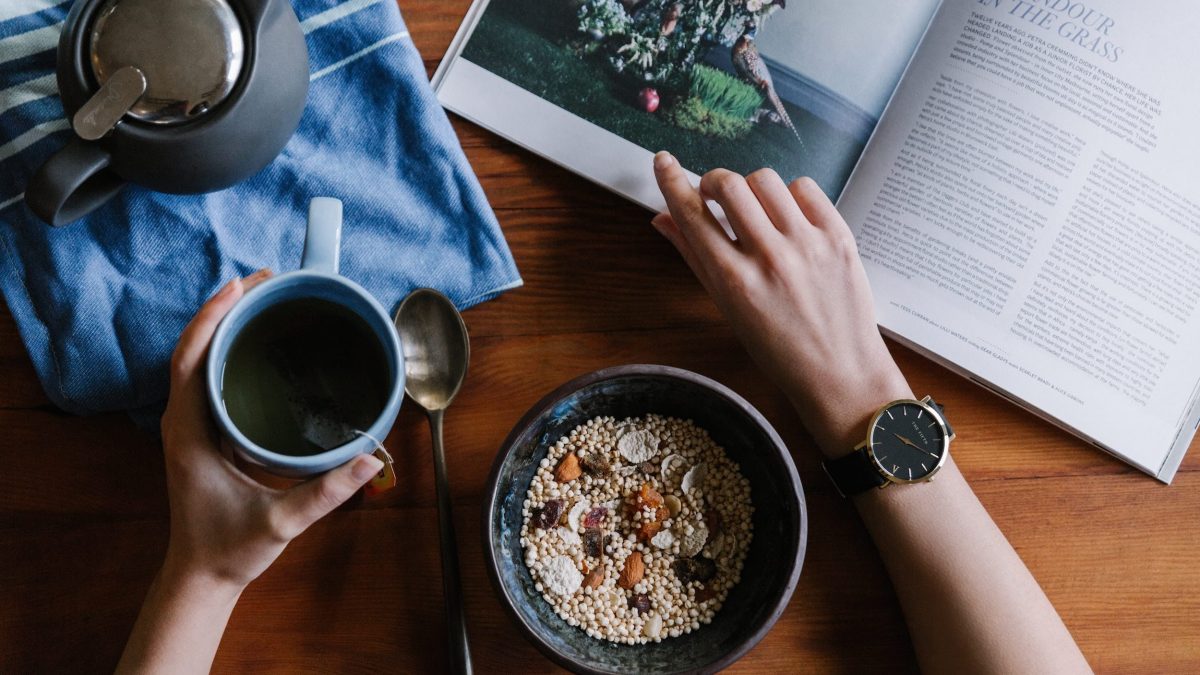
Spring Clean your Mental Health
March 12, 2021
Empty Nest
October 25, 2021Throughout the COVID-19 pandemic daily and weekly routines have been disrupted. Many people have had big changes, whether that be the loss of a job, working from home, or dealing with kids in virtual school. Regular activities of going to work, social engagements, or working out at the gym have all been interrupted or altered.
Without the structure of a routine, it is easy to feel overwhelmed. You may find that tasks become unmanageable, or that you have no motivation. Routines can help you cope with stress, manage competing demands, and take time to care for yourself.
Here are some benefits of developing a routine:
1. Routines encourage good sleep
Having a bed-time routine and consistent sleep schedule promotes better quality sleep. Sleep is vital to your physical and psychological well-being. Developing a relaxing routine before bed helps your mind and body to relax. This can help you to fall and stay asleep easier. Try turning off your devices, having a warm bath, meditating, or drinking herbal tea before bed to help quiet your mind and relax your body.
2. Routines promote healthy habits
A routine makes including exercise and good nutrition easier. A common reason for not exercising or eating well is, “I don’t have the time”. By creating a routine, you can make time for these activities and plan for them in advance. Try having specific days for grocery shopping or workouts, and specific times for meal prep. This can help build these important habits into a busy schedule. Taking care of your physical needs is an important part of creating good mental health.
3. Routines help relieve anxiety
Routines give you direction. They help eliminate fears of the unexpected by allowing you to know what happens next. A consistent routine means you make less decisions during the day because there is a scheduled time for each activity. Try picking a specific day and time for dreaded tasks like laundry or a school assignment. With a set time for an activity, you can avoid worrying about it in advance. Instead of thinking, “I really need to get to that laundry” you can rest easy knowing it will be dealt with Sunday morning.
4. Routines help prevent burnout
Burnout is the result of accumulated stress and is commonly associated with work stress. A consistent schedule during the day helps with productivity. Including short breaks can minimize the stress experienced throughout the day. When your workplace is your living room it can be hard to leave work at work. Sticking to a consistent work schedule and ending work at the same time each day helps you protect your downtime. We all need time to decompress at the end of a stressful day. Try creating a routine to help you transition from work time to home time. Use a simple ritual such as closing your home office door, changing your clothes, or putting work tasks out of sight, to signal the end of the workday.

Here are some tips on how to start building a routine.
- Think small. Simple things like brushing your teeth, making your bed, or turning off your work phone, can have a big impact.
- Try to do daily things at the same time each day.
- Write it down. Print or write out a chart of the days of the week. Use this to write in the tasks you need to accomplish throughout the week, and when you plan to tackle them.
- Use reminders. An alarm is often used to wake up, but you can also use an alarm as a reminder to go to the gym, or to go to bed.
- Plan ahead. Choosing your outfit the night before helps make the morning easier. Write a grocery list before you go shopping. Book your gym session in advance.
- Adjust as needed. If you’re finding that your new routine isn’t working for you, don’t be afraid to make changes until it feels right.
- Congratulate yourself when you stick to your routine. It can be hard to make the shift to a structured schedule, make sure to celebrate your successes!
Whether you’re returning to routine because of kids returning to school, or whether you’ve decided it’s time to wear more than pajamas while working from home, there are many benefits to developing and sticking to a routine.

cassie@okclinial.com





